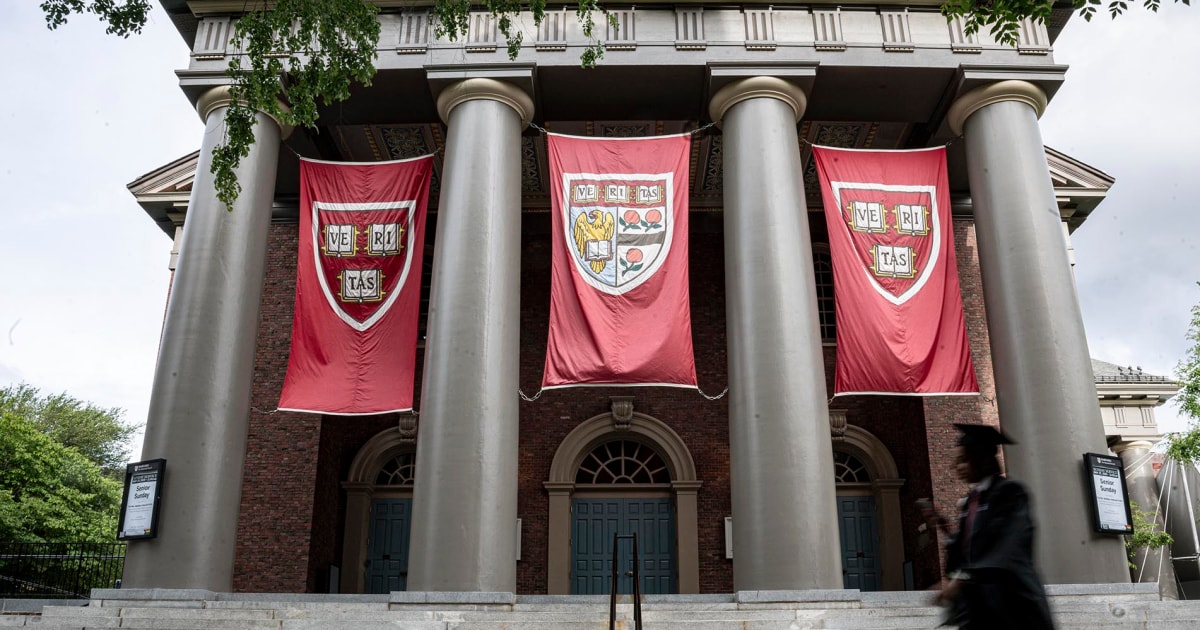Temporary Order Extended: Harvard’s Battle with the Trump Administration
On Thursday, a federal judge issued an extension to a temporary order that prevents the Trump administration from revoking Harvard University’s ability to enroll international students. This decision comes amidst a turbulent atmosphere, where tensions between prestigious institutions of higher learning and federal authorities are running high.
The Legal Background
This ongoing legal drama began last week when the Trump administration took the controversial step of revoking Harvard’s certification under the federal Student and Exchange Visitor Program (SEVP). This program is crucial, as it allows foreign students to study in the United States, and a significant portion of Harvard’s student body is composed of international scholars.
After the revocation announcement, U.S. District Judge Allison D. Burroughs swiftly intervened, temporarily halting the administration’s actions. The extension of this order came in light of a letter from the Department of Homeland Security (DHS) instructing Harvard to present sworn statements and other evidential documentation defending its position. This move indicates that the government intends to scrutinize Harvard’s compliance with various regulations, including maintaining a safe environment free from violence and antisemitism.
Harvard’s Defense
In her response, Harvard spokesperson Sarah Kennedy-O’Reilly expressed relief following the judge’s decision, highlighting that the temporary order allows the university to continue enrolling its international students and scholars. She emphasized the importance of these individuals, asserting that they play a vital role in Harvard’s academic mission and contribute significantly to the broader society.
From Harvard’s perspective, the legal battles underscore a commitment to protect the rights and welfare of its students, especially those who come from diverse backgrounds and face unique challenges while studying in the U.S.
Government Stance
Homeland Security Secretary Kristi Noem has taken a firm stance against Harvard, arguing that the university’s alleged non-compliance with federal oversight undermines its credibility. In her message, posted on social media platform X, Noem accused Harvard of disregarding American values and taxpayer contributions. She reinforced the administration’s position by claiming that Harvard must change its “endangering” conduct to continue benefiting from federal programs.
This rhetoric signals a broader campaign by the Trump administration to assert control over educational institutions, particularly those perceived as not aligning with its views, especially surrounding issues of free speech and campus safety.
International Student Impact
If the administration’s revocation of Harvard’s certification were to succeed, the repercussions would be significant. International students, who currently make up about one-fourth of Harvard’s total enrollment, would find themselves in precarious situations, potentially forcing them to transfer to other institutions to remain in the U.S. This high-stakes scenario raises questions about the future of international education in the country.
Funding Matters
The legal confrontations extend beyond student enrollment, as the Trump administration is also engaged in disputes over federal funding for Harvard. Recently, the administration stripped the university of $2 billion in federal research grants, inciting a separate lawsuit from Harvard. The ongoing battle over funding illustrates a broader conflict regarding the administration’s control over higher education and research funding, raising questions about how such actions could affect America’s global standing in innovation and education.
Broader Implications
On a legislative level, the Trump administration’s tactics reflect a strategic effort to reshape higher education by tightening control over admissions and faculty oversight. Last month, the administration issued sweeping demands through its Task Force to Combat Anti-Semitism, aiming for closer scrutiny over who gets admitted and employed at Harvard.
Simultaneously, new changes have been implemented regarding visa protocols for international students. Reports indicate that the State Department has stopped scheduling new visa interviews for incoming students while expanding scrutiny of applicants’ social media activities—a move that raises concerns about civil liberties and the future of a diverse student body in American higher education.
By exploring these multifaceted issues, it becomes evident that the confrontation between Harvard University and the Trump administration is not solely about one institution; it touches on broader themes of academic freedom, federal oversight, and the essential role of international students in enriching the educational landscape of the United States.


